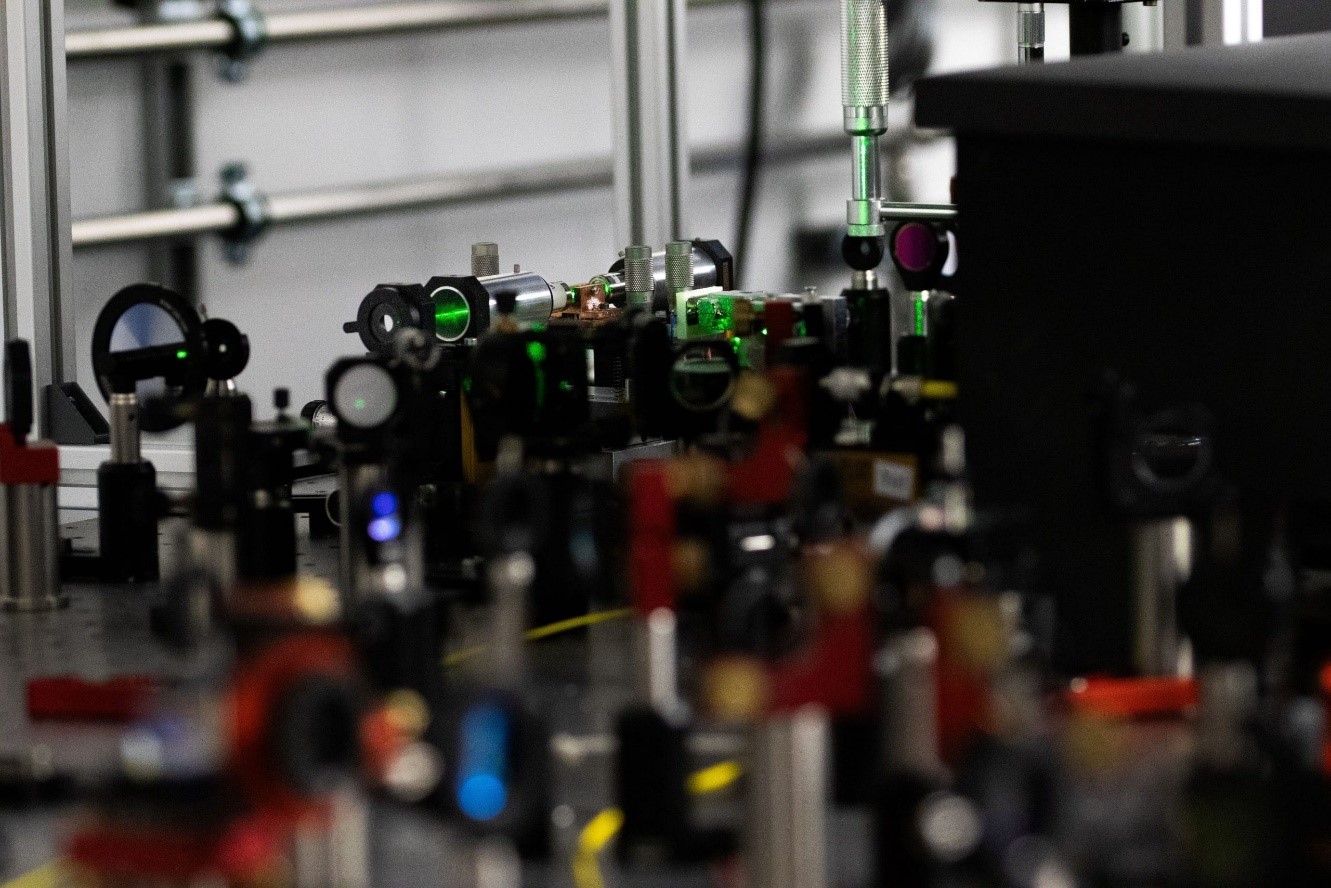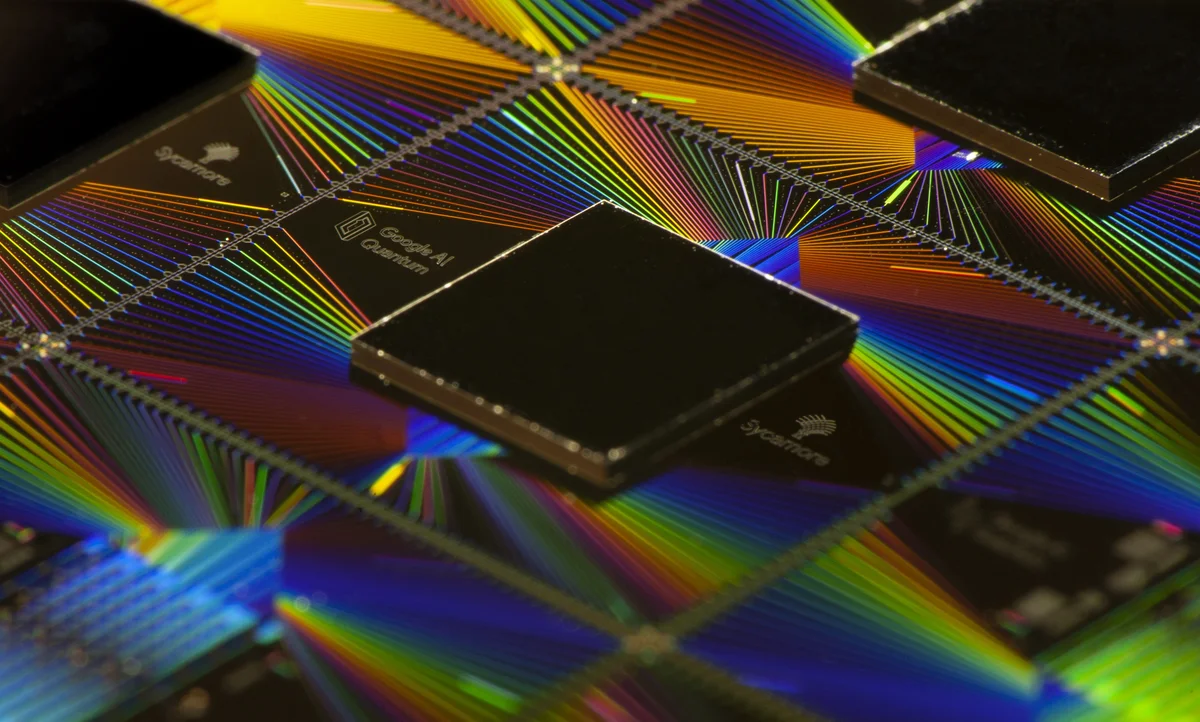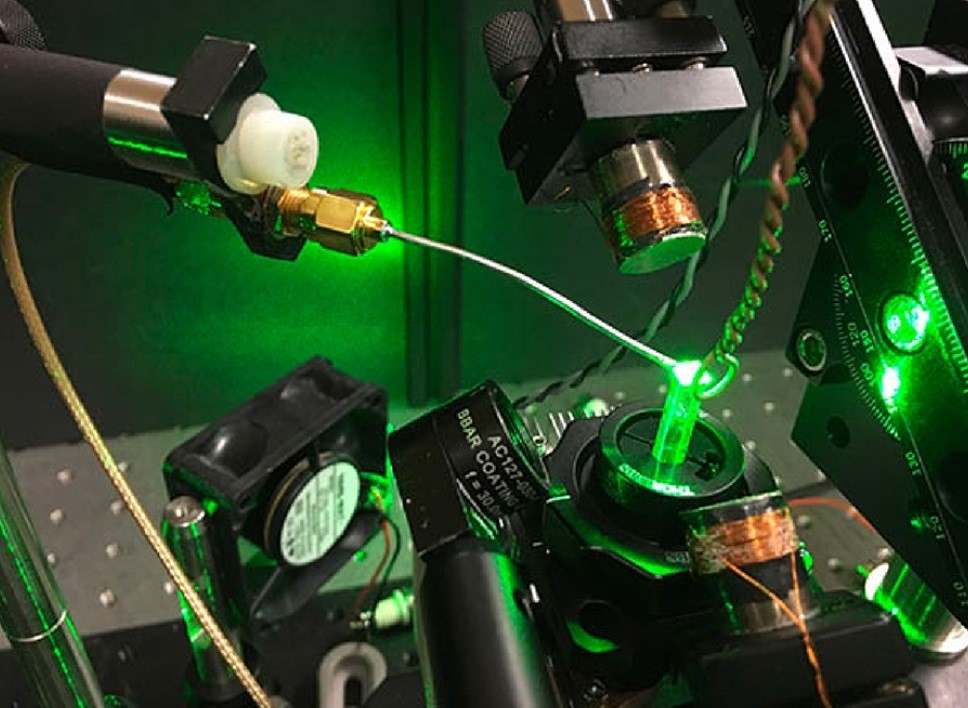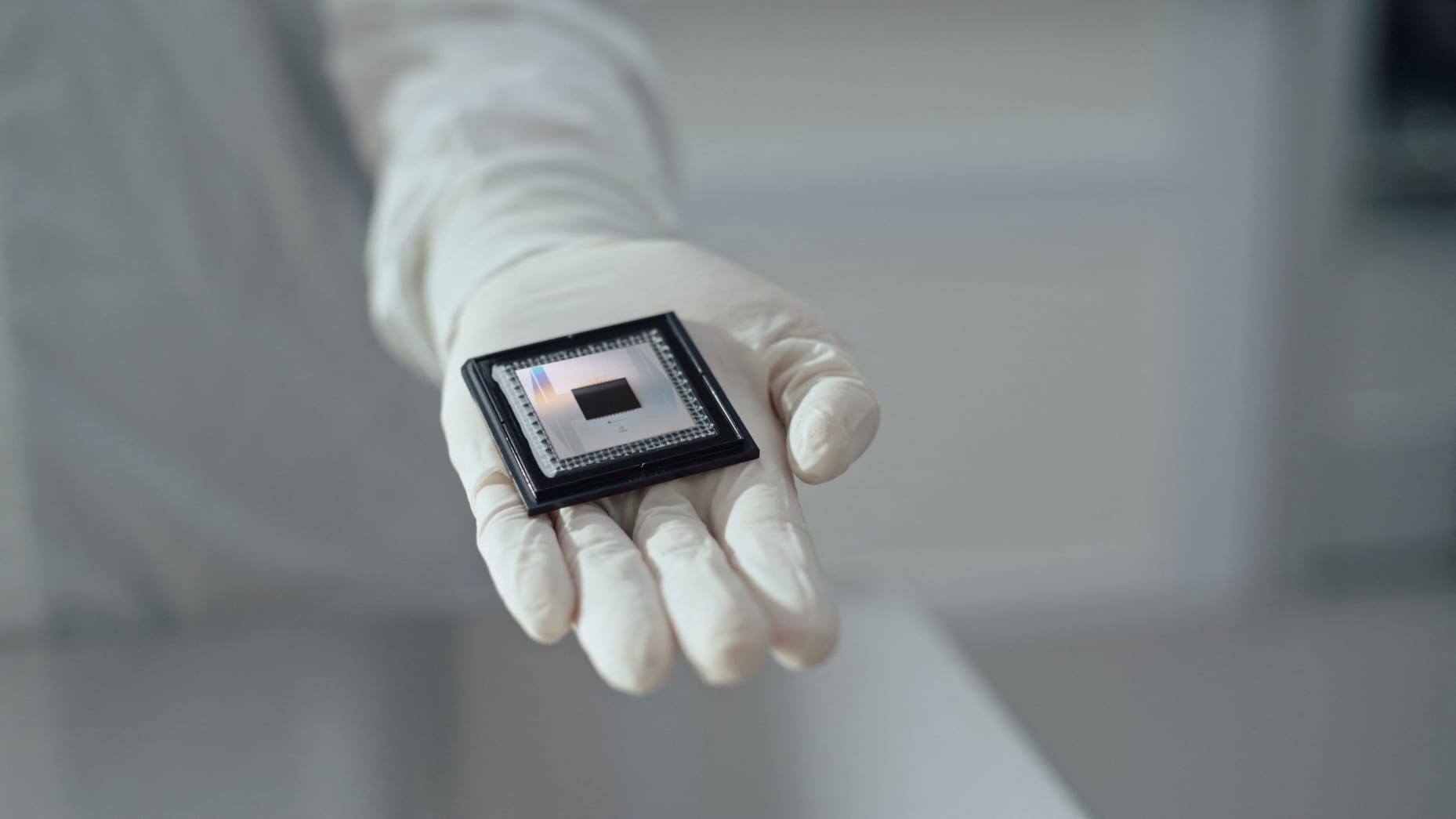Revolutionary Quantum Microprocessor Chip Developed by PolyU Engineers to Tackle Complex Molecular Simulations
Quantum simulation is revolutionizing various fields, including financial modeling, cybersecurity, pharmaceutical discoveries, AI, and machine learning. One particularly challenging problem is the simulation of molecular vibronic spectra, essential for understanding molecular properties in design and analysis. Traditional supercomputers struggle with this computationally intense task. Researchers have been working on quantum computers and algorithms to simulate these spectra, but they have been limited to simple molecules due to issues with accuracy and noise [2].
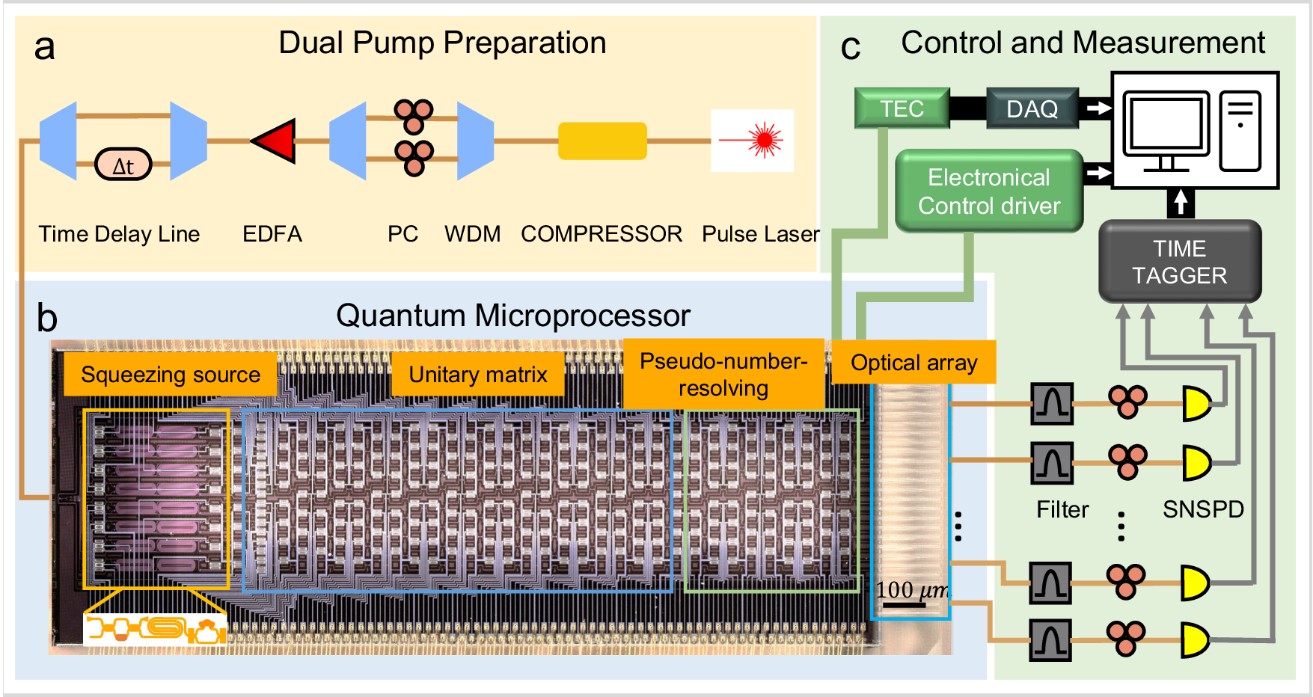
Figure 1. Schematic of a quantum microprocessor chip and experimental setup [1].
In a groundbreaking achievement, engineering researchers at The Hong Kong Polytechnic University (PolyU) have successfully developed a quantum microprocessor chip capable of simulating molecular spectroscopy for large and complex molecules—a world-first accomplishment. This cutting-edge technology captures quantum effects like superposition and entanglement with high accuracy, paving the way for solving complex quantum chemistry problems beyond the reach of classical computers. The research, published in Nature Communications under the title “Large-scale photonic network with squeezed vacuum states for molecular vibronic spectroscopy,” marks a significant advancement in quantum technology. Figure 1 shows schematic of a quantum microprocessor chip and experimental setup.
The research team, led by Professor LIU Ai-Qun, Chair Professor of Quantum Engineering and Science, and Dr. ZHU Hui Hui, Postdoctoral Research Fellow and first author of the paper, has demonstrated a large-scale quantum microprocessor chip. They introduced a novel theoretical model using a linear photonic network and squeezed vacuum quantum light sources to simulate molecular vibronic spectra. The 16-qubit quantum microprocessor chip, fabricated and integrated into a single chip, includes complete hardware integration for optical–electrical–thermal packaging and an electrical control module [3]. The system also features fully programmable software, encompassing device drivers, a user interface, and underlying quantum algorithms. This quantum computer system provides a fundamental building block for future applications.
The quantum microprocessor offers unprecedented potential for solving complex tasks, such as simulating large protein structures and optimizing molecular reactions with greater speed and accuracy. Dr. Zhu emphasized, “Our approach could yield an early class of practical molecular simulations that operate beyond classical limits and hold promise for achieving quantum speed-ups in relevant quantum chemistry applications.”
Quantum technologies are critical in fields like material science, chemistry, and condensed matter physics. Quantum microprocessor chips present a promising alternative for quantum information processing. The research findings and the resulting integrated quantum microprocessor chip open new avenues for practical applications, including molecular docking and quantum machine learning techniques like graph classification. Professor Liu highlighted, “Our research is inspired by the potential real-world impact of quantum simulation technologies. In the next phase of our work, we aim to scale up the microprocessor and tackle more intricate applications that could benefit society and industry.”
This pioneering development in quantum technology represents a significant leap forward, positioning the PolyU research team as leaders in the quest to harness quantum computing for real-world applications.
Source: The Hong Kong Polytechnic University
References:
- https://www.nature.com/articles/s41467-024-50060-2#Sec1
- https://www.eurekalert.org/news-releases/1055062
- https://www.sciencedaily.com/releases/2024/08/240820124440.htm
Cite this article:
Hana M (2024), Revolutionary Quantum Microprocessor Chip Developed by PolyU Engineers to Tackle Complex Molecular Simulations, AnaTechMaz, pp. 152







